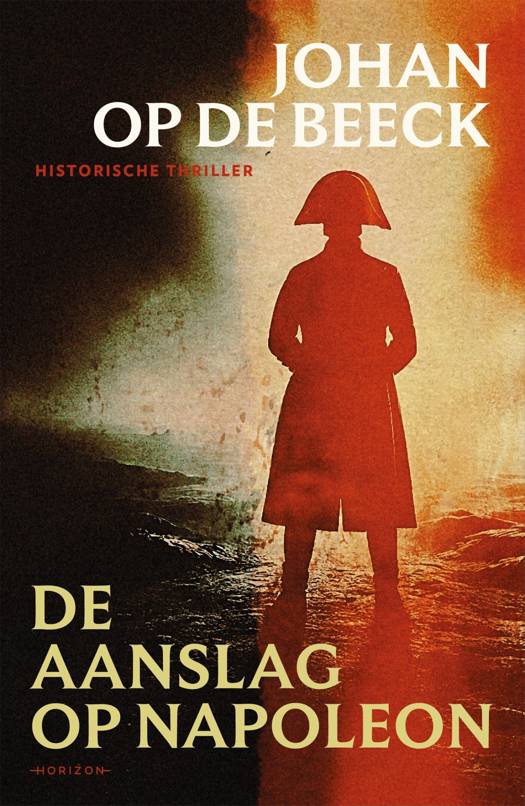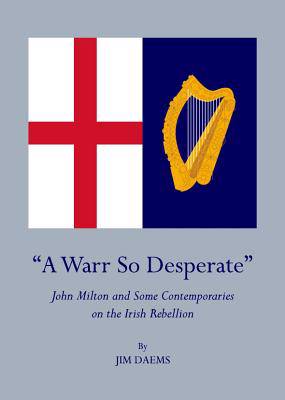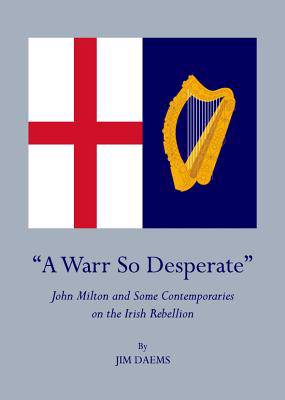
- Afhalen na 1 uur in een winkel met voorraad
- Gratis thuislevering in België vanaf € 30
- Ruim aanbod met 7 miljoen producten
- Afhalen na 1 uur in een winkel met voorraad
- Gratis thuislevering in België vanaf € 30
- Ruim aanbod met 7 miljoen producten
Zoeken
A Oea Warr So Desperateâ John Milton and Some Contemporaries on the Irish Rebellion
Jim Daems
Hardcover | Engels
€ 99,95
+ 199 punten
Omschrijving
A Warr So Desperate: John Milton and Some Contemporaries on the Irish Rebellion examines the political and colonial contexts of Milton's Observations Upon the Articles of Peace, as well as the relatively brief, but significant comments on the Irish Rebellion that occur elsewhere in his work. Commissioned by the Council of State in March, 1649, Milton's Observations puts forward the Commonwealth's justifications for the reconquest of Ireland which would soon follow with Oliver Cromwell's campaign. In doing so, Milton covers some familiar ground - for example, the trial and execution of Charles I, and the intolerance and political hypocrisy of the Presbyterians. However, the Irish Rebellion leads Milton to engage with these in a way which does not fit particularly well with how his views of personal, political, and religious liberties are generally perceived. Beginning with Milton's pragmatic reading of the documents he cogently critiques in the tract, this book then situates Observations within the polemical contexts of the 1640s and early 1650s, particularly the frequent representation of Irish atrocities (reliant on both anti-Catholic and ethnic prejudices) and Eikon Basilike's justification of Charles I's handling of the rebellion, arguing both Milton's agreement with and complicity in the reconquest.
Specificaties
Betrokkenen
- Auteur(s):
- Uitgeverij:
Inhoud
- Aantal bladzijden:
- 165
- Taal:
- Engels
Eigenschappen
- Productcode (EAN):
- 9781443835107
- Verschijningsdatum:
- 1/02/2012
- Uitvoering:
- Hardcover
- Formaat:
- Genaaid
- Gewicht:
- 117 g

Alleen bij Standaard Boekhandel
+ 199 punten op je klantenkaart van Standaard Boekhandel
Beoordelingen
We publiceren alleen reviews die voldoen aan de voorwaarden voor reviews. Bekijk onze voorwaarden voor reviews.











